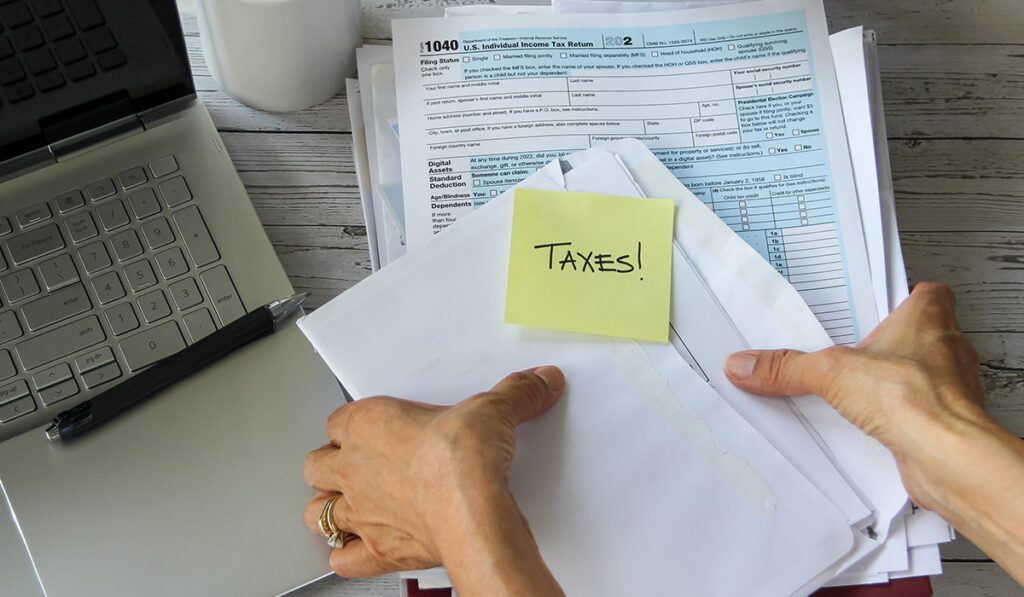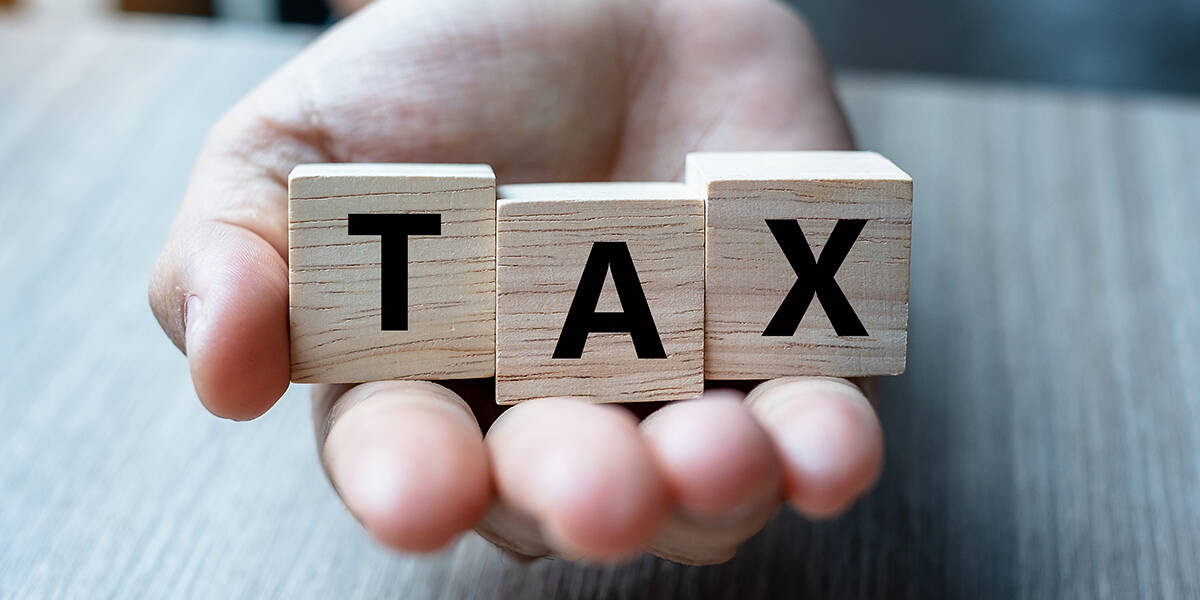

The Hong Kong Territorial Tax System — renowned for its advantageous non-taxable capital gains, corporate and personal tax rates, one-tier tax system, and comprehensive double tax treaties — is one of the determining factors for investors establishing their businesses in Hong Kong.
In this article, we will discuss how the Hong Kong taxation system is territorial, levying a tax on income earned or derived in Hong Kong, and explore the three direct taxes Hong Kong levies: the Profits Tax, the Salary Tax, and the Property Tax.
Hong Kong Territorial Tax System: Hong Kong Profits Tax
The Hong Kong taxation system levies taxes on a territorial basis.
Hong Kong solely taxes business earnings, employment income, and rental income generated in or sourced from Hong Kong. The type of profits or revenue and the transactions that generate such earnings or income determine whether they are generated in or sourced from Hong Kong.
Hong Kong has a single-tier corporation tax structure, which means that any tax paid by a company on its profits is not passed on to the shareholders (for example, dividends are free from tax).
In Hong Kong, there is no capital gains tax. Capital expenses and capital losses are not deductible. There is no VAT or GST in the Hong Kong taxation system. To help Hong Kong corporations reduce their tax burden, Hong Kong has signed over 30 bilateral comprehensive tax treaties.
Interest payments and dividend distributions from a Hong Kong business are not subject to withholding taxes. Only a few types of payments like royalties and payments made to non-resident athletes or celebrities for appearances in Hong Kong, are covered by withholding tax in Hong Kong.
In Hong Kong, royalties paid to non-residents for the right to or use of intellectual property are regarded as taxable income unless they are deductible to the payer. Royalty payments are considered taxable at a rate of 30% of their gross amount, or 4.95% (4.5% for a non-corporate person).
If the intellectual property was owned by a Hong Kong businessperson, then the entire royalty payment to an associated non-resident is treated as taxable income at a rate of 16.5% (15% for a non-corporate person).
The royalty payer has the responsibility of withholding the correct tax from payments made to non-residents.
Tax Rates of Profit
- Corporate assessable profits are 16.5%.
- Assessable profits of an unincorporated business are 15%.
- Capital gains is 0%.
- Dividend distribution to shareholders is 0%.
- Non-Hong Kong sourced income is 0%.
NOTE: For the first HK$2 million of assessable profits, the profits tax rate will be reduced to 8.25% (50% of existing profits tax rate) for corporations and to 7.5% (50 % of standard rate) for unincorporated firms.
This started with the year of assessment 2018/19 (mostly partnerships and sole proprietorships). One business selected from among related firms is the only one eligible for this tax rate discount.
Profits Tax Return Filing Schedule
In the Hong Kong taxation system, a newly established business will typically receive its first profits tax return about 18 months after the date of incorporation, and the filing deadline is three months after that date.
The following is the deadline for filing a profit tax return:
- For “N Code” between April 1 to November 30, deadline is May 2 of the following year.
- For “D Code” between December 1 to December 31, deadline is August 15 of the following year.
- For “M Code” between January 1 to March 31, deadline is November 15 of the same year.
The following documents must be submitted:
- Calculation of taxes and related schedules.
- Audited financial statements.
- Profits Tax Return.
For further information, please see Profits Tax Return – Corporations and Notes and Instructions – Form BIR51A.
Hong Kong Territorial Tax System: Salary Tax
The Hong Kong taxation system mandates that a remuneration tax must be paid on any income earned in Hong Kong or generated from the territory, whether it be through a pension, an office, or employment.
The Hong Kong wage tax will not apply to employees who are exempt from it because their primary place of employment is located outside of Hong Kong and they do not physically reside in Hong Kong for more than sixty days (60) in a calendar year.
The table below shows the salary tax rate from the year of assessment 2018/19 onwards, with the standard tax rate of15%:
| No. of Transactions | Annual fee (HK$) | Special Price (HK$) |
| 0 – 59 | 2,300 | 2,070 |
| 60 – 119 | 3,200 | 2,880 |
| 120 – 239 | 4,600 | 4,140 |
| 240 – 359 | 5,900 | 5,310 |
| 360 or above | By quotation |
The beginning of the tax year is April 1 and ending on March 31 of the following year. The wage and salary tax return is typically distributed on the first business day of May each year, and the distributed.
For further information, please take a look at the Guide to Tax Return – Individuals.
Hong Kong Taxation System: Paying Taxes in Hong Kong
For making tax payments in Hong Kong, there are a few different options available to choose from. Payment of taxes can be made electronically in Hong Kong, which is a time-saving and easy option that can be completed in a matter of minutes.
You can also pay your taxes electronically using an ATM or a phone (however, this method requires that you have a PPS account). Whether or not you have a bank account in Hong Kong, you still have the option to pay your taxes in another country.
How Can We Help Your Company Comply With The Hong Kong Territorial Tax System?
The Hong Kong taxation system mandates that the first day of the assessment year is April 1, and it continues until the last day of March the following year. The first business day in April will be dedicated to the delivery of tax returns for corporations’ net income.
When the company receives the tax returns on the profits, they will be required to file the appropriate tax returns. If you want this procedure to go more quickly and smoothly for you, you should think about working with Premia TNC‘s trusted taxation experts.
When you choose a professional agency, they will guarantee that your company is compliant with the regulations of the Hong Kong taxation system, such as ensuring your taxes are submitted on time and that there are no errors made when it comes to paying what you are obligated to pay.
If your company is required to file a comprehensive set of returns, hiring a bookkeeping firm can assist you in maintaining accurate financial records throughout the year and make the tax preparation process simpler.
Our services include:
- Putting together financial statements, such as a balance sheet and an income statement.
- Preparing the ledger, cash book, bank book, accounts receivable and payable sub-ledgers, and the bank book.
- Arranging and filing the supporting documentation for the accounting system.
- Performing the functions of a tax representative, as well as preparing and submitting a profits tax return
Hong Kong Territorial Tax System: Frequently Asked Questions
1. What will happen if you fail to submit a profit tax return?
According to the regulations of the Hong Kong taxation system, an anticipated assessment will be given and you may be compelled to pay additional tax if you fail to file a tax return by the deadline or the extended due date in any circumstance.
Additionally, you can be the target of penalty proceedings that require payment of a fine or possibly legal action.
In accordance with Section 51(1) of the Inland Revenue Ordinance, the mere failure to file a return on time constitutes a violation of:
- Section 80(2) – charged HK$10,000 plus three times the tax that was or would have been undercharged, or;
- Section 82A – charged three times the tax undercharged or which would have been undercharged.
As a result, the punishment may be extremely harsh.
2. What is the tax rate for foreigners in Hong Kong?
If you are not a Hong Kong citizen but are working there with a visa permit or otherwise, you may be wondering if you have to pay any other taxes. Even if you work for yourself, you still have to pay income tax if you have a visa permit.
Foreigners and people with visa permits must pay the same salary taxes as people who live in the area. But, like other taxes, you will only have to pay tax on the money you make in Hong Kong.
According to the regulations of the Hong Kong taxation system, the salary tax does not apply to foreigners whose primary place of employment is located outside of Hong Kong but only stay in Hong Kong for less than 60 days.
Residents and people from other countries do not have to pay taxes on unemployment in Hong Kong.
3. How does tax in Hong Kong work?
Individuals are subject to progressive rates of taxation on their net chargeable income beginning at 2% and ending at 17%; or at a standard rate of 15% (2013/14 and onwards#) on net income (i.e. income after deductions), whichever is lower.
In accordance with the regulations of the Hong Kong taxation system, these rates are applied to the individual’s assessable income after deductions and allowances.
4. Does Hong Kong have VAT or GST?
In the Hong Kong taxation system, there is no value-added tax, sales tax, or value-added goods and services tax in Hong Kong.
5. Does Hong Kong have a capital gain tax?
Even though there is no capital gains tax in the Hong Kong Special Administrative Region, any profits made from the sale of assets located in Hong Kong SAR could be considered trading gains and would be subject to the region’s profits tax.
Individuals who live in Hong Kong and receive royalties from Hong Kong are subject to the profit tax on those royalties since they are considered company profits, according to the regulations of the Hong Kong taxation system.

premiatnc
View All BlogsRelated Posts
April 18, 2024
Initiating Maximum Returns with Hong Kong Tax Incentives
Hong Kong, renowned for its dynamic…
April 15, 2024
Trademark Registration In Hong Kong: What You Should Know
Trademark registration in Hong Kong…
April 15, 2024
Importance of Hong Kong Company Financial Statements: How to Prepare It Well
In the realm of business, Hong Kong…




